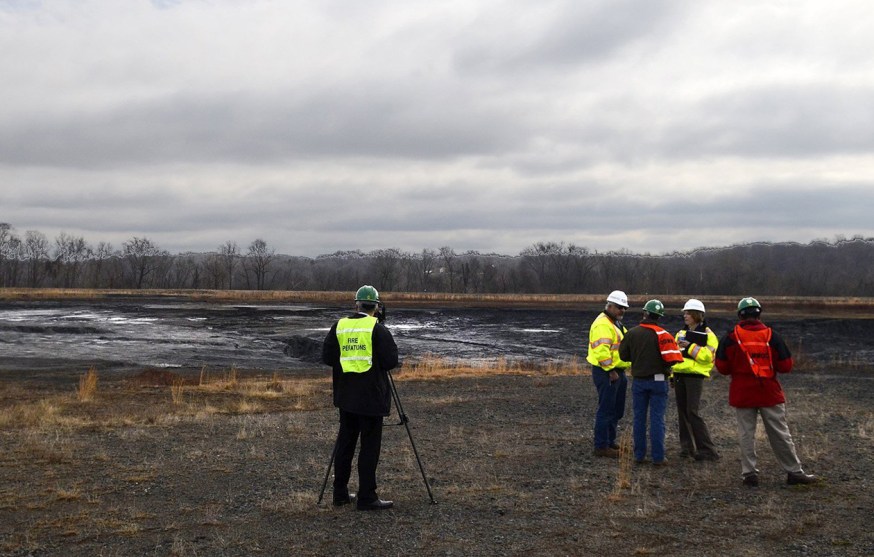
Duke Energy officials show off the latest coal ash leak from one of their power plants. This one leaked coal ash into the Dan River at Eden, NC in 2014.John D. Simmons/TNS/ZUMAPRESS
Poor Scott Pruitt. He’s dedicated to tearing down every environmental rule he can think of, but it turns out he’s doing a shoddy job of it. And while his boss might not care about that, it turns out that the courts do. Here’s the Washington Post today:
In March, as part of Scott Pruitt’s aggressive campaign to roll back federal regulations, the Environmental Protection Agency proposed relaxing standards for storing potentially toxic waste produced by coal-burning power plants.
EPA officials cited a study indicating that forcing utilities to get rid of unlined coal ash ponds too quickly could strain the electrical grid in several regions of the country. But when environmental advocates scrutinized the specifics, they discovered a problem: The evidence cited was not established scientific research. Instead, the agency was relying on a four-page document by the utility industry’s trade association, the Edison Electric Institute, which has acknowledged that its conclusions were not “part of or a summary of a larger study.”
….The coal ash proposal is among the more than half-dozen major EPA moves that have been snagged by procedural and legal problems. The delays threaten to tarnish Pruitt’s image as an effective warrior in President Trump’s battle against federal regulations, a reputation that has so far saved the EPA administrator his job amid an array of investigations into ethical and management lapses.
Pruitt thinks that science is just hogwash, yet another part of the academy controlled by liberals and whale huggers. So he’s fine with justifying EPA’s proposals using excerpts from industry pamphlets, fossil fuel advertising, or whatever else comes to hand. Unfortunately for him, the court system takes the idea of science a little more seriously and wants to see actual analysis performed by actual scientist who have at least a nodding acquaintance with actual evidence. This is a serious roadblock to Pruitt’s ambitions. Sad.

















